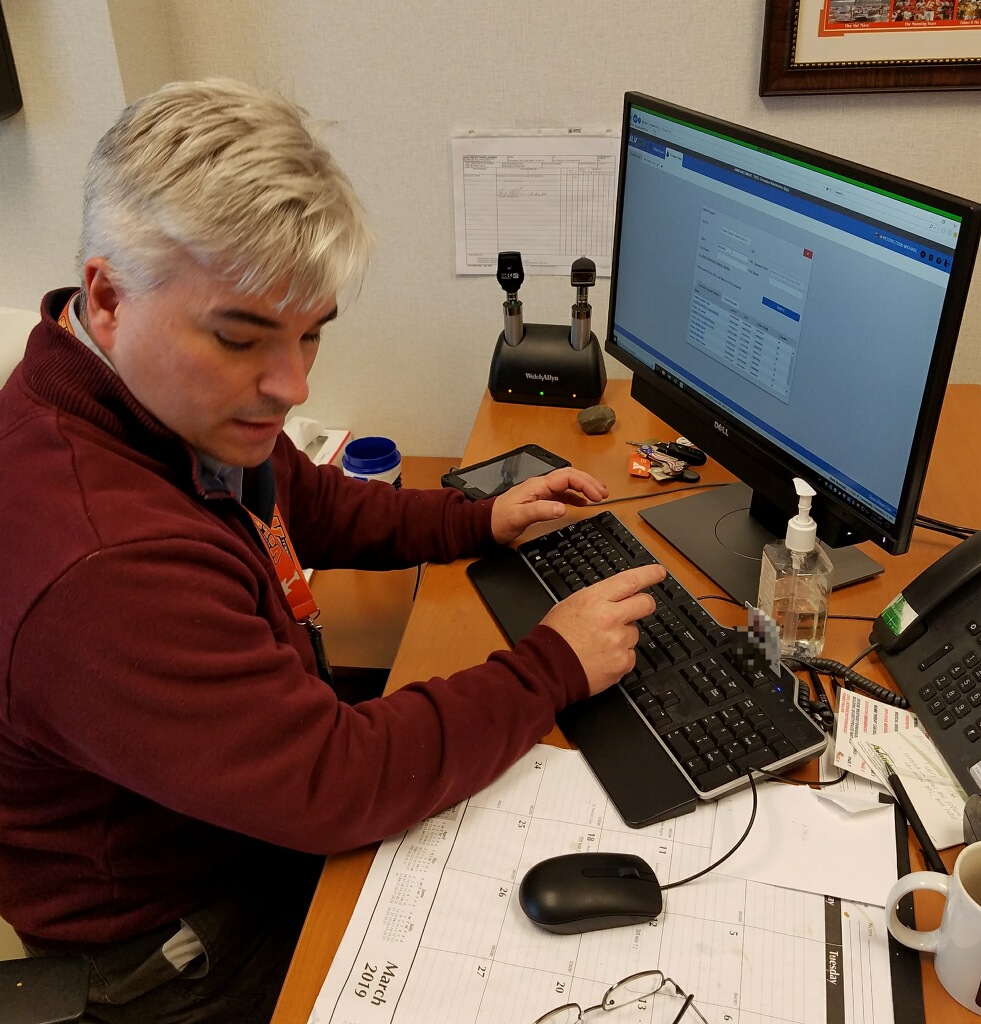Paperless Enlistment Processing Closer as Joint Legacy Viewer Test Expands to Eight MEPS
By Louis B. Wiseman

Dr. Todd Peters, Knoxville MEPS chief medical officer, uses the Joint Legacy Viewer to verify a prior-service applicant's medical history during the prescreen process
The next step forward to all-digital processing by United States Military Entrance Processing Command has begun with Phase II of a pilot program for the Joint Legacy Viewer, known as JLV, at eight Military Entrance Processing Stations. The JLV will ultimately be deployed to all 65 MEPS.
Spokane, Washington, MEPS was the site for Phase I of the pilot program and also participated in Phase II. Additional MEPS taking part in Phase II are Albany, New York; Anchorage, Alaska; Knoxville, Tennessee, Portland, Oregon; Seattle, Washington; Springfield, Massachusetts; and Syracuse, New York.
The JLV is a web-based, read-only viewer of health history information retained by the Department of Defense, Department of Veterans Affairs and private sector partners. It will be integrated with Military Health System GENESIS, which will initiate the electronic health record for each new member of the All-Volunteer Force when it is fully deployed. The record will follow individuals from enlistment, through their careers, and finally into Veterans Affairs after their service is complete.
Phase II is limited to applicants with prior service, because they already have an electronic health record due to their earlier service.
The JLV is an authoritative source of health information from DoD, the Department of Veterans Affairs and private healthcare exchanges. Medical conditions that existed prior to service, known as EPTS, have cost millions of dollars due to enlisting people with pre-existing medical conditions that aren't compatible with a successful career in the armed forces.
The aptitude and moral screening process for applicants has long included authoritative information, while medical screening has relied on applicants' self-disclosure of their medical history.
The pilot program will determine the accuracy of responses on the prescreen form, validate how much time it will take the chief medical officer to use the tool, and establish how to incorporate the JLV into medical processing and how to communicate JLV findings to Service Medical Waiver Review Authorities.
Access to authoritative medical information will yield better informed medical qualification decisions and give medical waiver authorities more complete medical histories of disqualified applicants so they can make more informed risk assessments and ultimately decrease medical attrition.
USMEPCOM's transformation efforts, which will ultimately lead to all-digital processing also includes converting a legacy 40-year-old legacy USMEPCOM Integrated Resource System into a cloud-based scalable system called USMIRS 1.1, incorporating MHS GENESIS and JLV into daily operations and electronically transmitting all enlistment records to training centers.